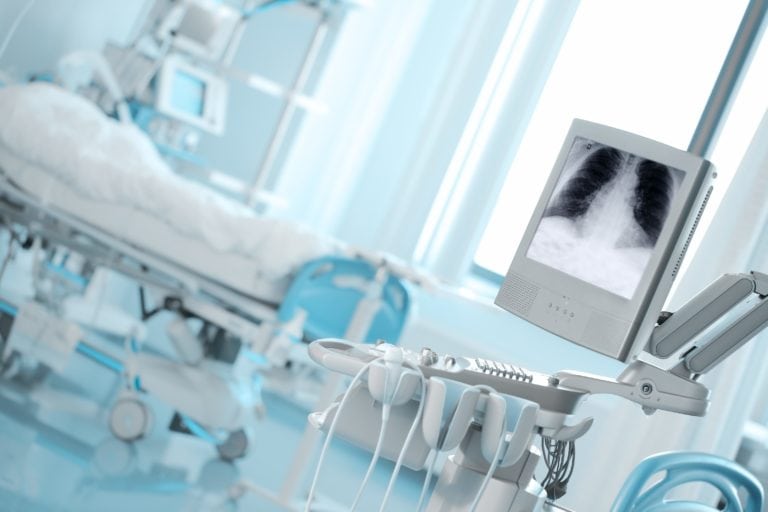
Patients requiring thoracic care are generally older, former or current smokers, and sicker as compared to other types of patients. Due to the nature of many thoracic patients, certain complications can arise during treatment. These complications may result in a need for thoracic critical care.
For starters, those individuals requiring thoracic care usually have predispositions for or already have underlying health issues. Some of these can include lung disease, arteriovascular disease, hypertension, diabetes, and renal insufficiency. As a result, they are at a significantly increased risk for pulmonary complications, which requires assistance from specialized intensive care unit staff. Listed below are some of the possible critical care issues that may arise in thoracic surgery patients.
Secretion Retention
Secretions in the tracheobronchial region are a natural defense mechanism for the respiratory system. When excess secretions are produced that cause coughing, the secretions are referred to as sputum. Sputum, or secretion, retention is a result of a patient’s inability to clear sputum from their respiratory tract, either individually or with assistance.
Secretion retention can be cause by two factors: the amount of mucous present and the ability, or inability, to cough. Patients with certain respiratory diseases known for producing more mucus are already at a predisposition to have an excessive amount of secretions. Many disease associated with thoracic care fit within this category. The second cause is the inability to adequately clear the secretions which is caused by not being able to cough. A patient’s ability to cough can be reduced by factors such as surgical pain, physical weakness, fatigue, poor coughing techniques, and dry mouth. It has been concluded that those individuals with a history of smoking or lung disease have an increased risk of developing secretion retention during thoracic surgery.
To treat secretion reduction, nasal-tracheal suction may be used. It may also be necessary to perform a minitracheostomy that will clear secretions from a tiny opening in the trachea. Depending on the severity of the case, bronchoscopy, intubation, or tracheostomy may be also considered and used.
Atelectasis
Atelectasis, or a complete or partial collapsing of the lung, is another possible critical care condition associated with thoracic patients. Patients with preexisting lung conditions have a much greater risk since their lungs are already compromised before the stress of surgery. General anesthesia, surgical manipulation of the lung, and secretion retention are all factors that can all contribute to atelectasis. Treatment for atelectasis includes chest physiotherapy and mobilization.
Pneumonia
Thoracic patients can also be at risk for pneumonia after thoracic surgery. This is because the increased breathing rate and an insufficient ability to cough in response to the pain cause secretions to accumulate in the lungs. Treatment will be dependent on the amount of fluid retention and the type of pneumonia, however most likely will begin with an antibiotic treatment.
Although there can be possible complications with thoracic surgery, the benefits usually outweigh the risks. Furthermore, there are things you can do to boost your postoperative success, including: breathing exercises, cough training, self-management education, and obtaining psychosocial support.

